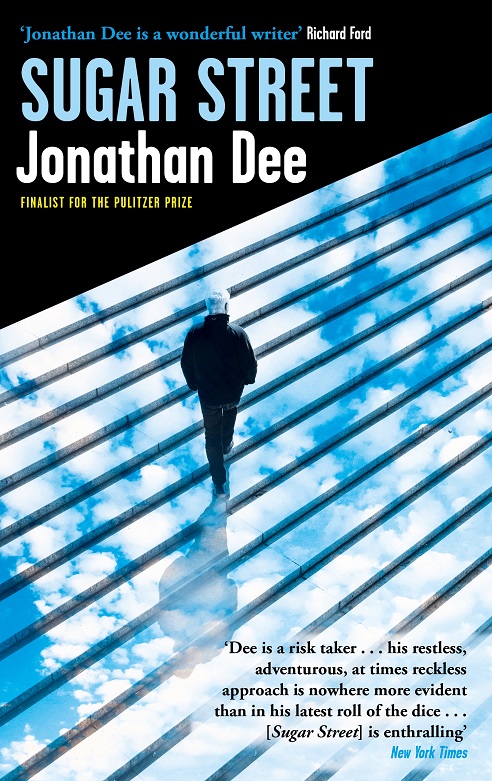Henry Thoreau famously went to live alone in a small house he built for himself: “I went to the woods because I wished to live deliberately, to front only the essential facts of life, and see if I could not learn what it had to teach, and not, when I came to die, discover that I had not lived.”
 Sean Sheehan
Sean Sheehan
Another remark of his – “The mass of men lead lives of quiet desperation. What is called resignation is confirmed desperation” – also serves to shed light on Jonathan Dee’s new novel “Sugar Street”.
The antihero of the novel is an unnamed man who also abandons his usual way of life and seeks to live alone, partly because he has illicitly obtained $168,000 in cash and is aware that people will be searching for him. Unlike Thoreau, his plan is not a temporary experiment; he has severed all connections with his previous existence and intends to remain off the grid forever.
Bank cards and phone are disposed of, CCTV cameras avoided and, as the fugitive he has become, he looks for a place where he can disappear. He finds a room in a house, pays the rent for half a year in advance and settles into his new anonymity.
 There is a thriller element to the story as the reader waits to finds out what the man did, who he is running away from and what will happen when his pursuers catch up with him but these ingredients of the genre are braided with the very human story of his emotional impoverishment as he tries not to form relationships with other people.
There is a thriller element to the story as the reader waits to finds out what the man did, who he is running away from and what will happen when his pursuers catch up with him but these ingredients of the genre are braided with the very human story of his emotional impoverishment as he tries not to form relationships with other people.
At the novel gradually reveals more about the fugitive’s motive for going on the run, Thoreau’s observation about people living lives of ‘quiet desperation’ becomes relevant.
But it is another literary character, a fictional one, who comes to define the motivating decision behind the man’s behaviour: Bartleby, the character in the Herman Melville’s short story “Bartleby the Scrivner”.
Melville’s character, working in a legal office, comes to respond to normal work-related requests with “I would prefer not to”. This leads to increasing difficulties for all those who have dealings with him and Bartleby ends up in prison where he refuses to eat and eventually dies.
Slavoj Źiźek likes to deploy Bartleby as an emblem of the ‘politics of subtraction’ and the hero of “Sugar Street” uses similar language in the blistering final pages of the novel.
The fugitive is driven by the conviction that “the only way to improve this world is to subtract from it. Only subtract” and this accounts for the final act of resolute defiance that draws the story to an end.
 The politics of the story become explicit, terrifyingly so, in its final pages –carrying the message that something has to be done to reduce the suffering that stares us in the face– and “Sugar Street” ends by packing a punch that the reader won’t see coming.
The politics of the story become explicit, terrifyingly so, in its final pages –carrying the message that something has to be done to reduce the suffering that stares us in the face– and “Sugar Street” ends by packing a punch that the reader won’t see coming.
“Sugar Street” by Jonathan Dee is published by Corsair.
(Photos: Pixabay)












.jpg)












